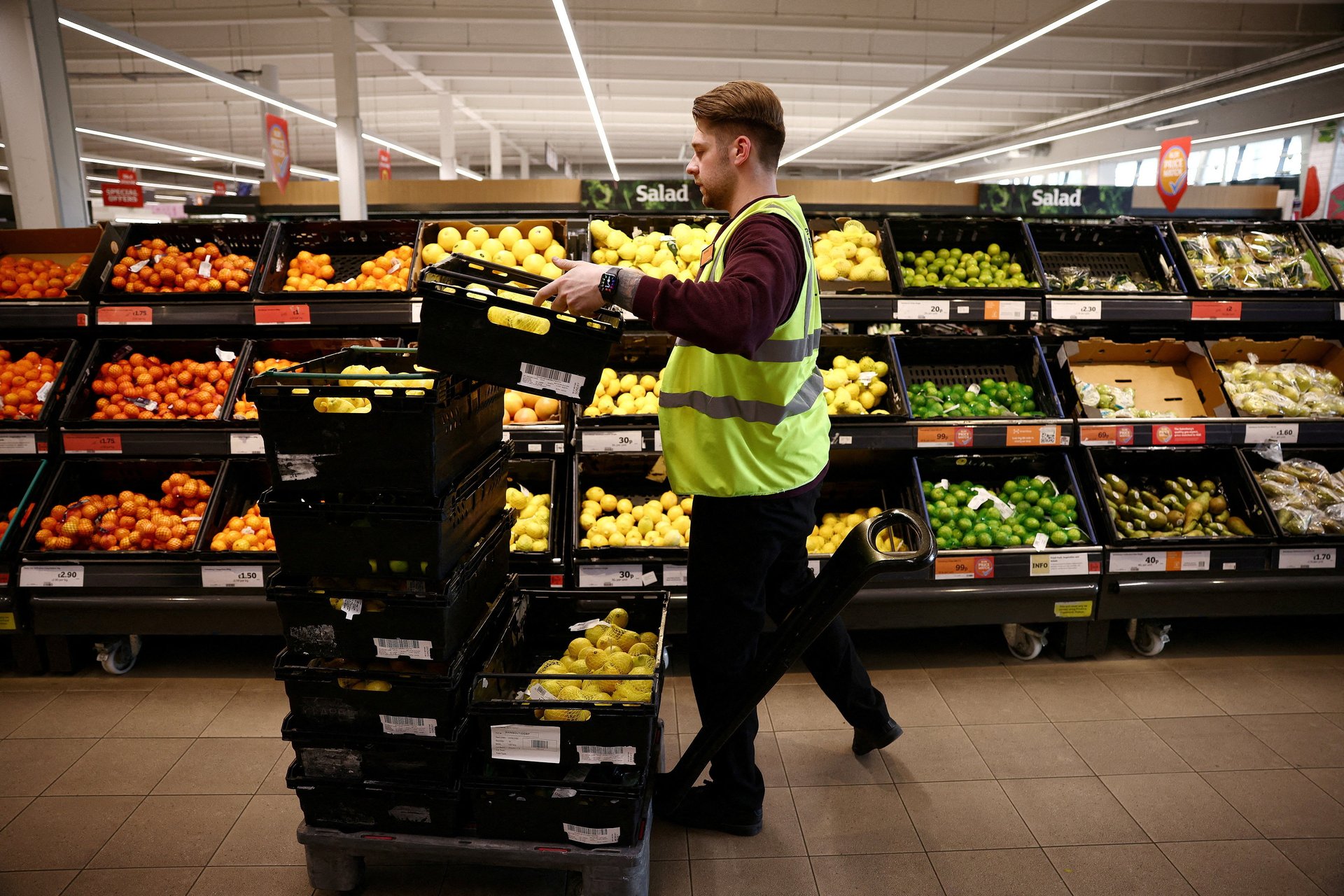High energy prices and Brexit are causing a fresh produce shortage in the UK
Just three years after the country voted to leave the EU, supermarkets are restricting the number of vegetables shoppers can buy

Tomatoes and lettuce are out of stock at a number of British supermarkets this week, along with a number of other fresh fruit and vegetables, leading some to pin blame on Brexit.
A number of supermarkets have been forced to place limits on the number of items customers can buy at a time in response to the shortage.
On Thursday (Feb. 23), the UK environment secretary Thérèse Coffey told parliament that the shortages were due to “unusual weather” in Spain and Morocco, but it was not immediately clear to what weather patterns she was referring.
Politicians from the opposition Labour party, among other critics of the current government, responded by accusing Coffey of making excuses for supply interruptions caused by Brexit. The country’s exit from the EU has created numerous supply chain woes, with British businesses ranking Brexit as their biggest obstacle last year, worse than pandemic-related restrictions and Russia’s invasion of Ukraine.
Industry experts, however, say rising energy costs are likely the primary cause for the supply shortages. Due to the war in Ukraine, energy costs are reaching their highest levels in decades, which has made greenhouse-based agriculture in northern Europe cost prohibitive.
Instead, importers are looking to sunny Spain and North Africa, driving up prices and bottlenecking the supply chain. Almost half of all tomatoes consumed in the United Kingdom currently come from either Morocco or Spain.
Quotable:
“It’s important to make sure that we cherish the specialisms that we have in this country. A lot of people would be eating turnips right now rather than thinking necessarily about aspects of lettuce and tomatoes and similar.” — UK environment secretary Thérèse Coffey said in a speech to parliament. Labour MP Ben Bradshaw quickly responded with a cheeky tweet: “Let them eat turnips!”
45%: The percentage of Britons who think Brexit is going wore than they had originally expected.
3: The number of consitutuencies in the United Kingdom—out of 632—that still have a favorable opinion of Brexit.
50%: The percentage increase in import declarations in the UK since the country left the single market, undercutting the common campaign refrain that Brexit would slash bureaucratic red tape facing businesses.
330,000: The net loss of workers the UK has been left with following Brexit.
5.5%: The percentage by which the UK is estimated to be poorer now than it would have been had it stayed in the EU.
